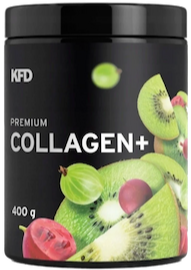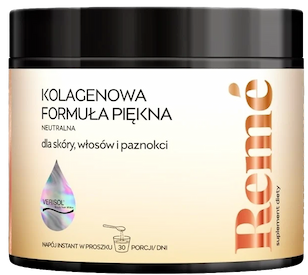Collagen for hair (best supplements, benefits, and use)
Collagen for hair can effectively prevent breakage and reduce hair loss.


Learn more about our editorial process
.

Learn more about our editorial process
.

Learn more about our editorial process
.

Learn more about our editorial process
.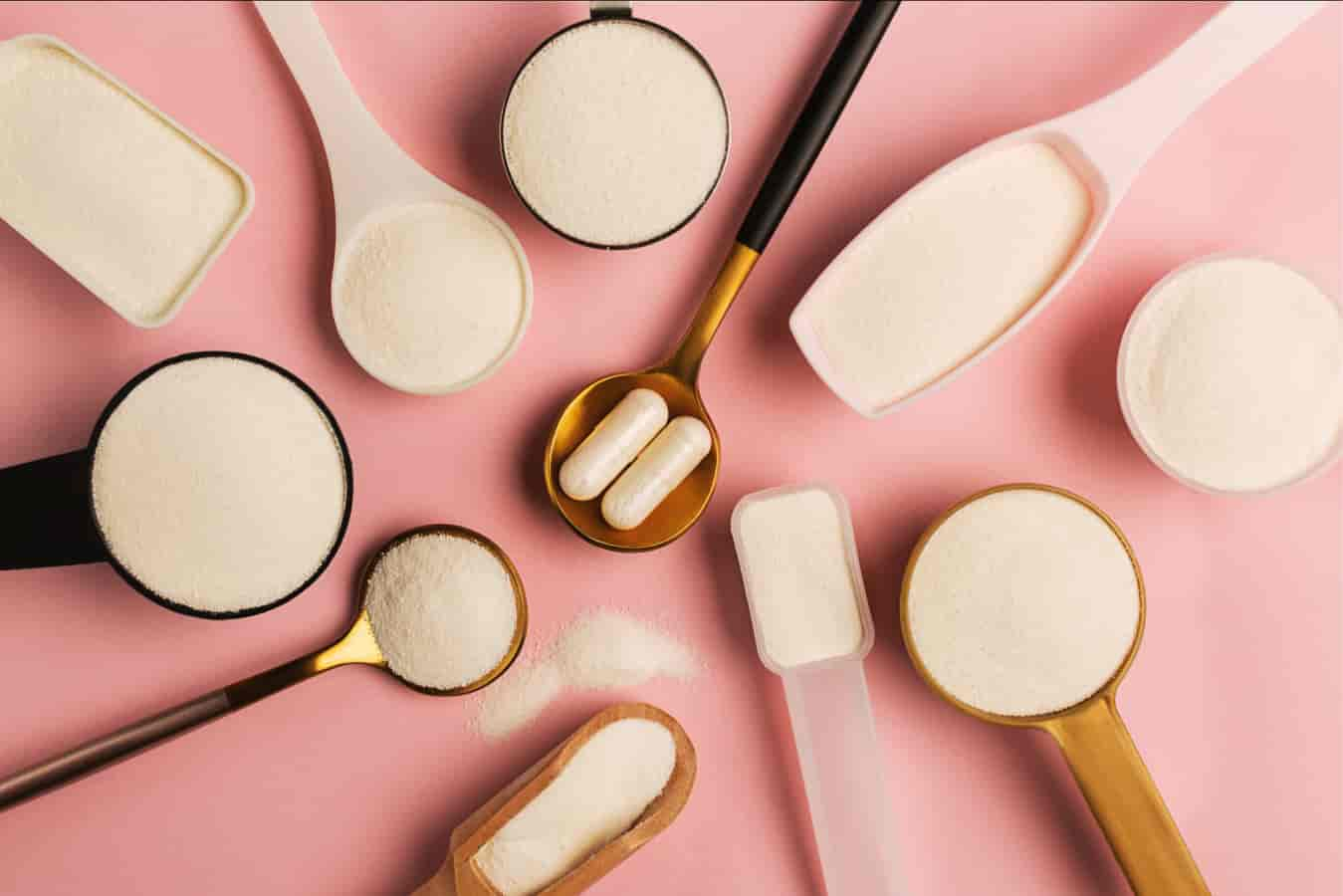
Why you can trust us
Articles on Natu.Care are written based on scientific research, data from government websites and other reliable sources. The texts are written in cooperation with doctors, nutritionists and other health and beauty experts. Articles are reviewed before publication and during significant updates.
.Learn more about our editorial process
.Information about advertisements
Content on Natu.Care may contain links to products from the sale of which we may receive a commission. When creating content, we adhere to high editorial standards and take care to be objective about the products discussed. The presence of affiliate links is not dictated by our partners, and we select the products we review ourselves completely independently.
.Learn more about our terms and Conditions
.Healthy hair should be like silk. Shiny and smooth. Well, that's right, it should. If the shelves in your bathroom are starting to bend under the weight of a drugstore-like display and you can't see the results...
It's worth looking for a solution that helps you nourish your hair from the inside out (rather than applying another layer of cosmetics).
With cosmetologist, Catherine Sreber, I will not only suggest the best collagen preparations for hair, but also add a few tips to restore your hair to its former shine.
From this article you will learn:
- Whether collagen works for hair and which is the best. .
- What effects collagen supplementation can have on hair. .
- Whether fish collagen is better than bovine collagen and hydrolysed collagen is better than freeze-dried collagen. .
- What you need to know about collagen treatments (and more) for hair. .
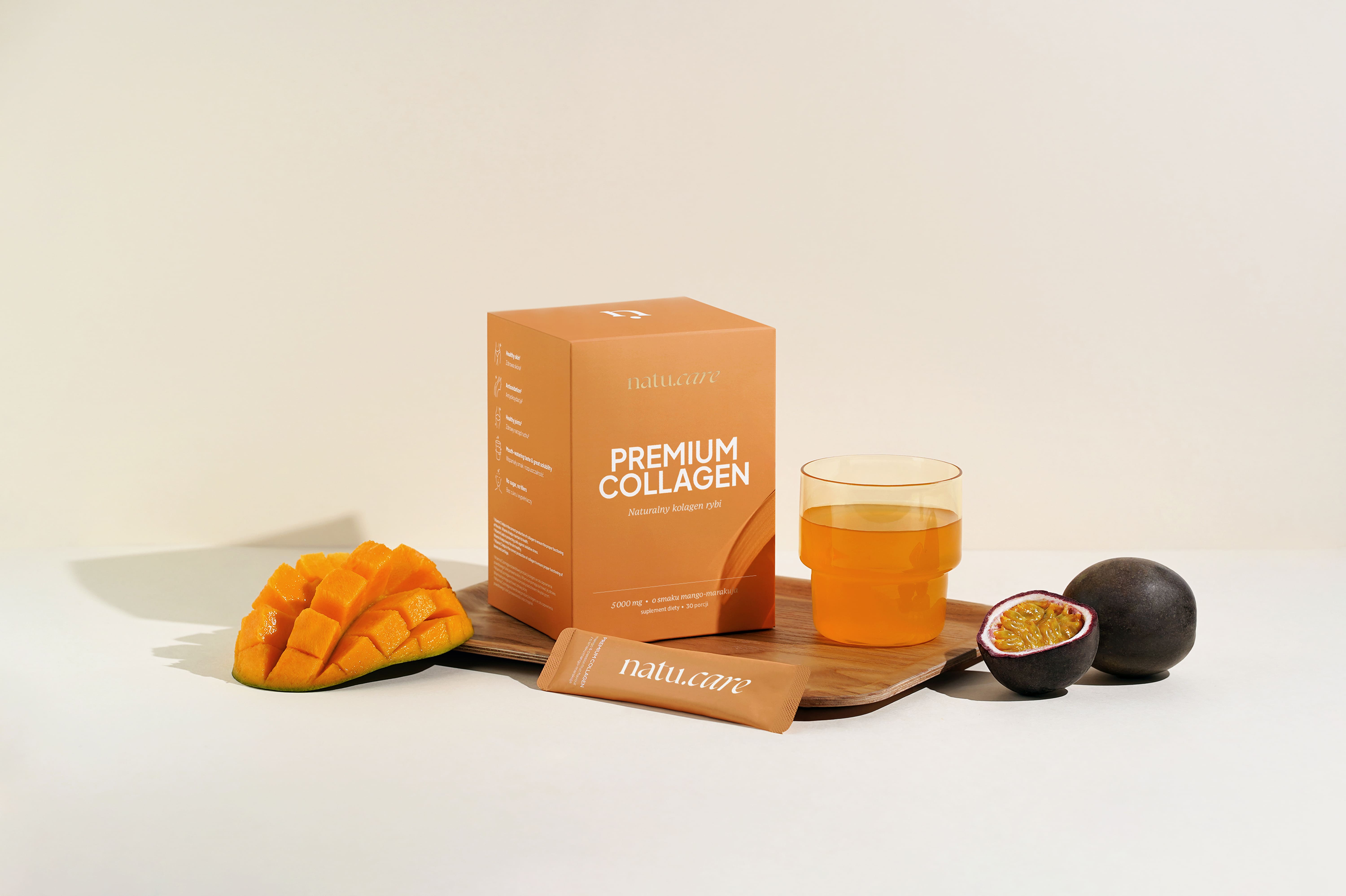
Sprawdź, za co pokochały go tysiące klientek Kolagen Premium 5000 mg, mango-marakuja
Natu.Care Kolagen Premium 5000 mg, mango-marakuja
Natu.Care Kolagen Premium dla zdrowia stawów, skóry, paznokci i włosów. Najlepsza przyswajalność. Optymalna dawka 5 000 lub 10 000 mg. Przebadany przez niezależne laboratorium.
Zobacz więcej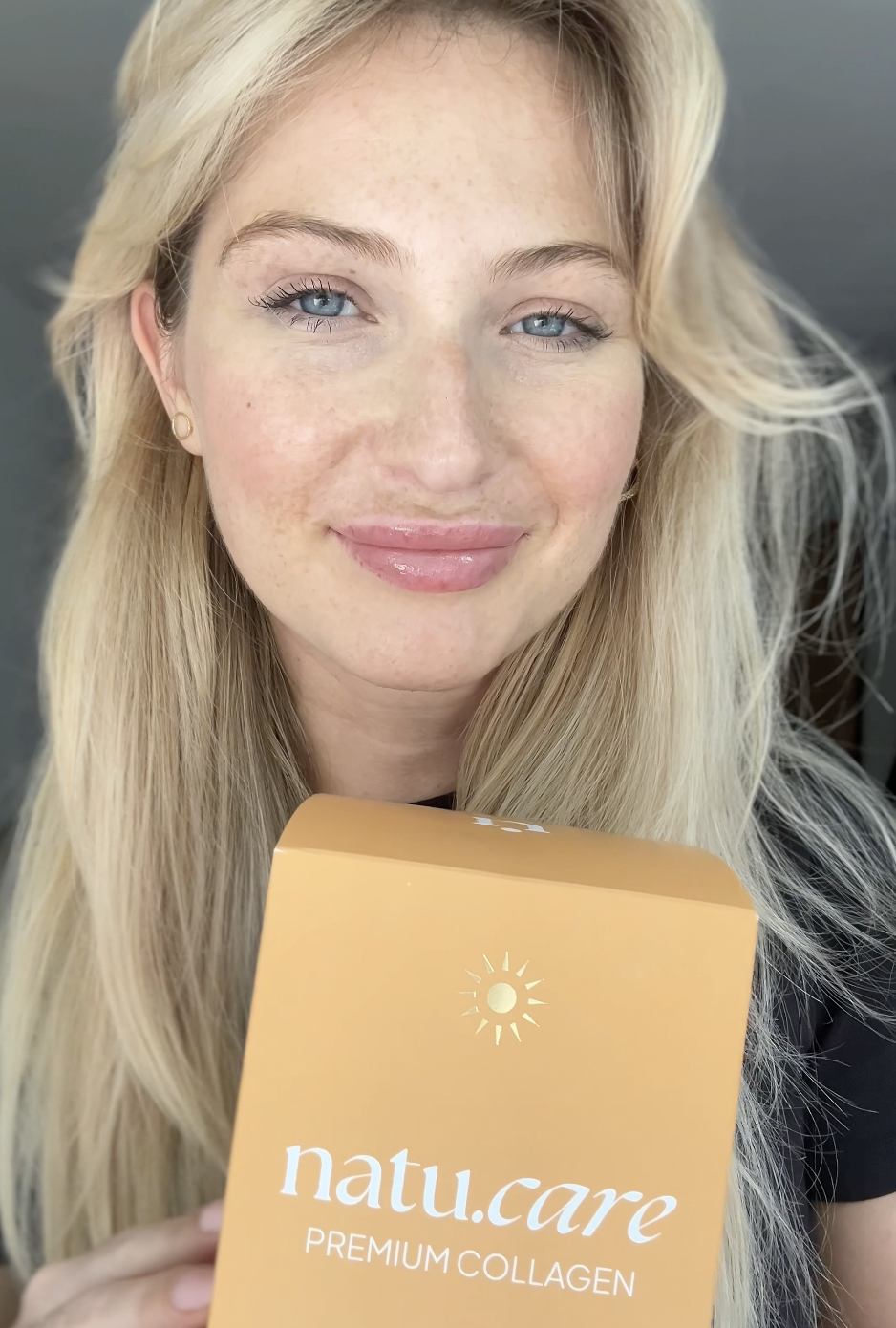
Wybrałam kolagen Natu.Care, ponieważ miał super opinie – a to było dla mnie bardzo ważne! Odkąd go stosuję, moja skóra znacznie się poprawiła i jest nawilżona, a na głowie pojawiły się nowe "baby hair".@Kasia S.
See also:
.
- The best collagen on the market .
- Best collagen for nails
- Best collagen for face
- Best collagen for wrinkles
- Best collagen for skin
- Best collagen for joints
- Best collagen for hair
- Best collagen for cellulite
- Best collagen for acne
- Best collagen for stretch marks
- Best collagen for scars
- Best collagen for bones
- Best collagen for tendons
- Best collagen for drinking and collagen for drinking (effects)
Does collagen work on hair?
.
Yes, collagen can help improve the condition of hair. It works on them by strengthening the roots, which can reduce brittleness and hair loss. The youth protein can also increase hair shine and reduce any greying. Collagen also interacts with keratin, which is responsible for building hairand.
Why does collagen help hair?
.
Collagen helps hair mainly because of its cooperation with keratin. However, that's not all - the youth protein will also provide you with numerous amino acids, some of which are important for hair health.
Proline
.
Proline plays an important role in the structure and health of hair. First of all, it is involved in cell regeneration, which is important for hair health and growth. In the process, proline makes hair stronger and less susceptible to damageand.
Additionally proline can also help moisturise the scalp, with dryness leading to dandruff and other problems that affect hair growth .
Hydrating the scalp, by providing nutrients such as proline, can help keep the skin healthy and promote healthy hair growth.
Arginine
.
Arginine is a precursor to nitric oxide, which helps to dilate and relax blood vessels, which improves blood circulation.
These properties can increase blood flow to the hair follicles, supplying them with more nutrients and oxygen, which stimulates hair growthand.
Arginine, like proline, also contributes to the cell regeneration process, which is important for hair growth .
Glutamic acid
.
Glutamic acid is essential for the production of glutathione, one of the most important antioxidants in the body. Oxidative stress at a cellular level can lead to hair and scalp damage, so protecting against this stress can help maintain hair health .
What is the best collagen for hair?
.
The best collagen for hair is hydrolysed collagen type 1 fish collagen. Hydrolysis breaks down collagen into small particles (peptides), which increases absorption. Fish collagen can absorb up to 50% better than, for example, beef collagen. And type 1 collagen is the most important collagen in the body - making up 90% of all collagenand.
How collagen works on hair - effects
.
Collagen is not only the foundation of healthy skin, but also a key element for building strong and healthy hair. Previously often overlooked in favour of other nutrients, it is now gaining increasing attention as an essential supplement that contributes to hair health. How does collagen work on hair?
Hair strengthening
.
Collagen can strengthen hair as it is one of the main building blocks of its structure. Providing the body with adequate amounts of collagen can increase the health and strength of hair, which prevents breakage and hair lossand.
What does the research say?
.A study was conducted in 2023 to test the effects of a supplement with hydrolysed fish collagen, taurine, cysteine, methionine, iron and selenium. The study involved 83 participants (with a mean age of 41 years) suffering from excessive hair loss. Patients were divided into two groups - the first took medication only and the second took medication with the supplement. The results after six weeks were better for the group with the supplement, and after 12 weeks the difference was even greater. In the group taking the supplement, up to 50% of people achieved satisfactory improvement (against 23% in the other group)and.
Collagen
Collagen works with keratin.
Collagen is not only an essential building block of hair, but also a key element in supporting the production of keratin - another protein that underpins hair structure. Ensuring adequate levels of collagen can help the body produce keratin, resulting in better hair texture and appearanceand.
Improves hair growth
.
Collagen can stimulate hair growth. This is related to its ability to strengthen hair follicles and improve blood circulation in the scalp, which provides better access to nutrients needed for hair growth .
Prevents greying
.
Collagen can act on grey hair and prevent further colour changes. This action is due to its ability to help the body fight oxidative stress. Excess free radicals in the body can damage hair cells and accelerate ageing processes such as greyingand.
Hydrates and restores hair
.
Collagen is important for keeping hair moisturised. Collagen's moisturising properties help to avoid dryness, which can lead to damaged and damaged hair. In addition, due to its regenerative abilities, collagen can help repair damaged hairand.
Which hair collagen to choose - ranking
.
Criteria for selection:
.
- Collagen portion. Supplements should have no less than 2.5 grams of collagen hydrolysate. A the strongest collagens for hair have a dosage of about 10 gramsand. .
- Purity of formulation. There should be no unnecessary additives in the formulation - preservatives, colours or other fillers. .
- Additional active ingredients. The addition of vitamins and minerals is an advantage of many collagen supplements. Certain ingredients, notably vitamin C, promote collagen absorption and production by the bodyand.
- Laboratory studies. The best collagens for hair have studies conducted by independent laboratories.
- Collagen origin. Most often it fish collagen to drink proves to be a better option than other suggestions (more on that below). .
- Taste. An individual, but for many the most important criterion. So what if supplementation provides you with a lush head of hair if it doesn't give you any pleasure? Here you will see the full criteria. .
Natu.Care Collagen Premium 5000 mg, mango-maracuja

- Collagen content: 5000 mg marine collagen hydrolysate
- .
- Additional active ingredients: vitamin C, low molecular weight hyaluronic acid (and L-theanine and coenzyme Q10 in cocoa flavoured collagen or vitamin A and vitamin E in mango–passion fruit flavoured collagen)
- .
- Form: powder sachets
- .
- Dose: 1 sachet per day
- .
- Sufficient for: 30 days
- .
Product description
Fish collagen from the Natu.Care brand in a dose of 5000 mg. The formula contains a sufficient portion of the active substance to positively affect your joints, musculoskeletal system and immunity.
Take care of your tendons, joint cartilage, ligaments, muscles and even bones by supplying them with the building blocks to function properly. Move without bólu and provide the necessary support for any physical activity.
And as a „gratis” to regular supplementation, you will also receive firm skinóhand, healthy and shiny hair and strong nails.
Natu.Care Premium Collagen is available in two flavours – Cacao Bloom and Rise&Shine. Both formulas are based on the following active ingredients: marine collagen hydrolysate, wild roseóbud extract and hyaluronic acid.
Additionally, Cacao Bloom contains natural L-theanine, coenzyme Q10 and defatted Dutch cacao. Rise&Shine instead contains vitamin E and vitamin A.
These are the best collagens in the world.
These best fish collagens on the market also rós taste – Cacao Bloom is a treat for chocolate lovers. Rise&Shine will appeal to those whoóenjoy the refreshing taste of mangoófruit and passion fruit.
Pros and cons
Fish collagen from the Natu.Care brand in a dose of 5000 mg. The formula contains a sufficient portion of the active substance to positively affect your joints, musculoskeletal system and immunity.
Take care of your tendons, joint cartilage, ligaments, muscles and even bones by supplying them with the building blocks to function properly. Move without bólu and provide the necessary support for any physical activity.
And as a „gratis” to regular supplementation, you will also receive firm skinóhand, healthy and shiny hair and strong nails.
Natu.Care Premium Collagen is available in two flavours – Cacao Bloom and Rise&Shine. Both formulas are based on the following active ingredients: marine collagen hydrolysate, wild roseóbud extract and hyaluronic acid.
Additionally, Cacao Bloom contains natural L-theanine, coenzyme Q10 and defatted Dutch cacao. Rise&Shine instead contains vitamin E and vitamin A.
These are the best collagens in the world.
These best fish collagens on the market also rós taste – Cacao Bloom is a treat for chocolate lovers. Rise&Shine will appeal to those whoóenjoy the refreshing taste of mangoófruit and passion fruit.
Additional information
Fish collagen from the Natu.Care brand in a dose of 5000 mg. The formula contains a sufficient portion of the active substance to positively affect your joints, musculoskeletal system and immunity.
Take care of your tendons, joint cartilage, ligaments, muscles and even bones by supplying them with the building blocks to function properly. Move without bólu and provide the necessary support for any physical activity.
And as a „gratis” to regular supplementation, you will also receive firm skinóhand, healthy and shiny hair and strong nails.
Natu.Care Premium Collagen is available in two flavours – Cacao Bloom and Rise&Shine. Both formulas are based on the following active ingredients: marine collagen hydrolysate, wild roseóbud extract and hyaluronic acid.
Additionally, Cacao Bloom contains natural L-theanine, coenzyme Q10 and defatted Dutch cacao. Rise&Shine instead contains vitamin E and vitamin A.
These are the best collagens in the world.
These best fish collagens on the market also rós taste – Cacao Bloom is a treat for chocolate lovers. Rise&Shine will appeal to those whoóenjoy the refreshing taste of mangoófruit and passion fruit.
User review
Fish collagen from the Natu.Care brand in a dose of 5000 mg. The formula contains a sufficient portion of the active substance to positively affect your joints, musculoskeletal system and immunity.
Take care of your tendons, joint cartilage, ligaments, muscles and even bones by supplying them with the building blocks to function properly. Move without bólu and provide the necessary support for any physical activity.
And as a „gratis” to regular supplementation, you will also receive firm skinóhand, healthy and shiny hair and strong nails.
Natu.Care Premium Collagen is available in two flavours – Cacao Bloom and Rise&Shine. Both formulas are based on the following active ingredients: marine collagen hydrolysate, wild roseóbud extract and hyaluronic acid.
Additionally, Cacao Bloom contains natural L-theanine, coenzyme Q10 and defatted Dutch cacao. Rise&Shine instead contains vitamin E and vitamin A.
These are the best collagens in the world.
These best fish collagens on the market also rós taste – Cacao Bloom is a treat for chocolate lovers. Rise&Shine will appeal to those whoóenjoy the refreshing taste of mangoófruit and passion fruit.
Natu.Care Collagen Premium 10000 mg, cherry

- Collagen content: 10,000 mg of hydrolyzed bovine collagen
- Additional active ingredients: vitamin C, low molecular weight hyaluronic acid, glucosamine, chondroitin, extract of Indian frankincense resin (boswellia serrata)
- Form: powder sachets for drinking
- Serving: 1 sachet per day
- Lasts for: 30 days
Product description
One of the strongest collagens on the market, providing as much as 10,000 mg per daily serving. This product can effectively support the condition of joints, skin, hair, and nails.
With this supplement, you will support your skeletal and joint system as well as your beauty, helping you visually halt the aging process and feel rejuvenated!
Pros and cons
Pros:
- The daily portion of collagen is very large – as much as 10,000 mg.
- Proven collagen formula – COLLinstant, whose effectiveness has been confirmed in clinical studies.
- Effective dose of hyaluronic acid, which additionally moisturizes the skin and positively affects joint health.
- Vitamin C supports the body's natural collagen production.
- Glucosamine is a fundamental building block of compounds found in joint cartilage and a component of collagen that gives elasticity to connective tissue in tendons.
- Chondroitin is a natural component found in the human body, mainly in cartilage. This large molecule (mucopolysaccharide) has the ability to absorb water, which helps maintain the elasticity and resilience of cartilage.
- Frankincense resin extract supports blood circulation and joint mobility and reduces their stiffness. It may help alleviate inflammatory conditions.
- The composition has been tested by the independent and accredited J.S. Hamilton laboratory.
Cons:
- None.
Additional information
Users praise Natu.Care Collagen Premium for the easy dissolving of the powder.
ALLDEYNN Collarose Fish
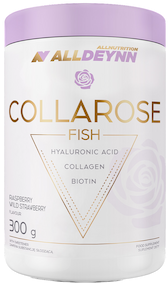
- Collagen content: 5000 mg hydrolysate fish collagen VERISOL F® .
- Additional active ingredients: vitamin C, hyaluronic acid, biotin
- Form: powder to dissolve in water .
- Dose: one scoop (6 g) of powder daily .
- Sufficient for: 50 days .
Product description
Atlantic cod collagen VERISOL F® contained in the formula are easily absorbed collagen peptides of fish origin. Regular supplementation can firm your skinóhand and slow down the ageing process. Your nails will become stronger and stop breaking. The addition of biotin will improve the condition of your hairów. The collagen portion is high enough to also have a good effect on your joints, muscles and bones.
Pros and cons
Atlantic cod collagen VERISOL F® contained in the formula are easily absorbed collagen peptides of fish origin. Regular supplementation can firm your skinóhand and slow down the ageing process. Your nails will become stronger and stop breaking. The addition of biotin will improve the condition of your hairów. The collagen portion is high enough to also have a good effect on your joints, muscles and bones.
Additional information
Atlantic cod collagen VERISOL F® contained in the formula are easily absorbed collagen peptides of fish origin. Regular supplementation can firm your skinóhand and slow down the ageing process. Your nails will become stronger and stop breaking. The addition of biotin will improve the condition of your hairów. The collagen portion is high enough to also have a good effect on your joints, muscles and bones.
Expert and user opinion
Atlantic cod collagen VERISOL F® contained in the formula are easily absorbed collagen peptides of fish origin. Regular supplementation can firm your skinóhand and slow down the ageing process. Your nails will become stronger and stop breaking. The addition of biotin will improve the condition of your hairów. The collagen portion is high enough to also have a good effect on your joints, muscles and bones.
DuoLife Collagen fish collagen 2500 mg
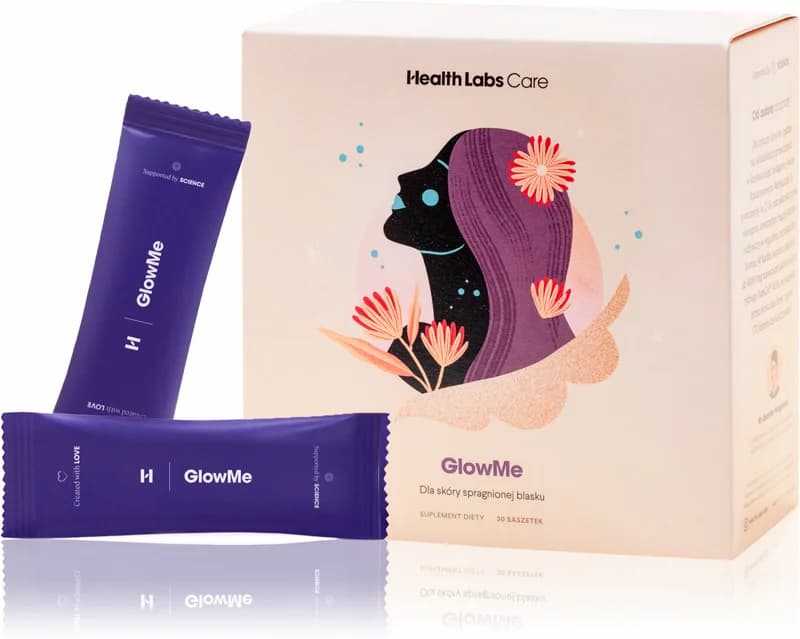
- Collagen content: 2500 mg collagen
- Additional active ingredients: vitamin C, silicon, glucosamine, hyaluronic acid, nettle and bamboo extracts
- Form: liquid to drink .
- Dose:25 ml .
- Sufficient for: 30 days .
Product description
100% natural collagen liquid without unnecessary ingredientsós. The composition of ingredientsós improves the appearance and condition of skinóry, hairów, nails. DuoLife is a good choiceór if you notice the first signs of skinóry ageing or want to stop this process. A tasty liquid, convenient to use.
Pros and cons
100% natural collagen liquid without unnecessary ingredientsós. The composition of ingredientsós improves the appearance and condition of skinóry, hairów, nails. DuoLife is a good choiceór if you notice the first signs of skinóry ageing or want to stop this process. A tasty liquid, convenient to use.
Additional information
100% natural collagen liquid without unnecessary ingredientsós. The composition of ingredientsós improves the appearance and condition of skinóry, hairów, nails. DuoLife is a good choiceór if you notice the first signs of skinóry ageing or want to stop this process. A tasty liquid, convenient to use.
User review
100% natural collagen liquid without unnecessary ingredientsós. The composition of ingredientsós improves the appearance and condition of skinóry, hairów, nails. DuoLife is a good choiceór if you notice the first signs of skinóry ageing or want to stop this process. A tasty liquid, convenient to use.
Pharmovit liquid collagen 10000 mg
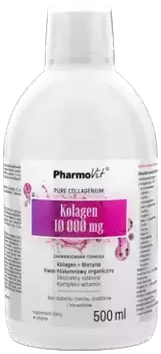
- Collagen content: 10000 mg hydrolysed bovine collagen types I and III .
- Additional active ingredients: hyaluronic acid, natural plant extracts, vitamin C, B vitamins, zinc, vitamin D
- Form: vials .
- Dose: 25 ml .
- Sufficient for: 20 days .
Product description
A solid daily dose of collagen for jointómuscle and bone health and beauty. The duo of collagen and vitamin C has a positive effect on each other, so that „the protein of youth” is better absorbed and more efficiently produced in the body.
Pros and cons
A solid daily dose of collagen for jointómuscle and bone health and beauty. The duo of collagen and vitamin C has a positive effect on each other, so that „the protein of youth” is better absorbed and more efficiently produced in the body.
Additional information
A solid daily dose of collagen for jointómuscle and bone health and beauty. The duo of collagen and vitamin C has a positive effect on each other, so that „the protein of youth” is better absorbed and more efficiently produced in the body.
KFD Premium Collagen+
Product description
High dose of collagen and a real bomb of vitamins C and D and organic sulphur. With this preparation the effects will come immediately. You will improve the firmness of your skin and reduce wrinkles. Your hair and nails will be strong and shiny.
A generous dose of collagen will improve the mobility of your jointsós, benefit your bone system and muscles. Do you do sports and need a product thatós able to keep up with your needs? This product will do the trick.
Pros and cons
High dose of collagen and a real bomb of vitamins C and D and organic sulphur. With this preparation the effects will come immediately. You will improve the firmness of your skin and reduce wrinkles. Your hair and nails will be strong and shiny.
A generous dose of collagen will improve the mobility of your jointsós, benefit your bone system and muscles. Do you do sports and need a product thatós able to keep up with your needs? This product will do the trick.
Additional information
High dose of collagen and a real bomb of vitamins C and D and organic sulphur. With this preparation the effects will come immediately. You will improve the firmness of your skin and reduce wrinkles. Your hair and nails will be strong and shiny.
A generous dose of collagen will improve the mobility of your jointsós, benefit your bone system and muscles. Do you do sports and need a product thatós able to keep up with your needs? This product will do the trick.
Expert opinion
High dose of collagen and a real bomb of vitamins C and D and organic sulphur. With this preparation the effects will come immediately. You will improve the firmness of your skin and reduce wrinkles. Your hair and nails will be strong and shiny.
A generous dose of collagen will improve the mobility of your jointsós, benefit your bone system and muscles. Do you do sports and need a product thatós able to keep up with your needs? This product will do the trick.
Product description
The dietary supplement from Remé contains beef collagen in a patented formula and vitamin C, whichóra aids its absorption. The formula comes in three flavours: neutral, orange-maracuja and strawberry-pomegranate. The formula can effectively support and improve the condition of the skinóry, hairóry and nails.
Pros and cons
The dietary supplement from Remé contains beef collagen in a patented formula and vitamin C, whichóra aids its absorption. The formula comes in three flavours: neutral, orange-maracuja and strawberry-pomegranate. The formula can effectively support and improve the condition of the skinóry, hairóry and nails.
Additional information
The dietary supplement from Remé contains beef collagen in a patented formula and vitamin C, whichóra aids its absorption. The formula comes in three flavours: neutral, orange-maracuja and strawberry-pomegranate. The formula can effectively support and improve the condition of the skinóry, hairóry and nails.
The dietary supplement from Remé contains beef collagen in a patented formula and vitamin C, whichóra aids its absorption. The formula comes in three flavours: neutral, orange-maracuja and strawberry-pomegranate. The formula can effectively support and improve the condition of the skinóry, hairóry and nails.
See also:
.
- How to choose collagen .
- How to choose collagen to drink
- How to choose collagen powder
- How to choose collagen in sachets
- How to choose liquid collagen
- How to choose collagen in tablets
- How to choose collagen in capsules
Where to buy collagen for hair.
You can buy hair collagen in stationary shops such as Rossmann or pharmacies. Most often, however, you will have a greater choice in online shops. The price of hair collagen, on the other hand, ranges from a few tens of zlotys to as much as 300-350 zlotys.
The price of hair collagen varies.
In what forms is hair collagen found?
.
The most popular form that collagen supplements come in is collagen for hair. It is characterised by its best absorption and convenience, which is why many hairmaniacs target it.
Under this name, there is collagen powder for hair (which needs to be diluted in water, for example), as well as the liquid itself. Both options are equally good, but remember that liquid collagen needs to be stored properly.
Another suggestion is collagen in tablets for hair. This is a more practical option, but more often than not the dose of the youth protein in such preparations is small. Moreover, it is not uncommon for supplementation to involve swallowing up to eight tablets a day, which can be quite problematic.
Fish or bovine collagen - which is better for hair?
.
The choice between beef collagen and fish collagen depends mainly on your dietary preferences or possible allergies. However, if nothing in particular restricts you, go for sea collagen. Why?
- Effectiveness. The structure of fish collagen is more (compared to beef collagen) similar to human collagen, allowing for easier absorption - the difference can be as much as 50% in favour of fish collagen compared to beef collagenand. .
- Quality. Fish collagen for hair is often sourced from wild-caught fish in clean waters, which has a positive impact on the quality of the product itself. Beef collagen, on the other hand, is often much less controlled. .
- Safety. Fish collagen is not associated with the potential risk of contracting zoonotic diseases such as 'mad cow disease' (BSE).
- Environmentally supportive. Fish collagen production can have less impact on the environment, especially if you choose formulations with certifications such as MSC.
- Compatibility with diets. For those following a pescovegetarian diet, fish collagen is the only option if they want to take the protein of youth for hair.
The structure of fish collagen is similar to human collagen, which promotes absorption in the body. As a result, the formula works faster and better. The process of producing fish collagen is also simpler, so supplements are cheaper..
 .
.
Witold Tomaszewskidoctor of medical sciences
.Hydrolysed or lyophilised collagen - which is better for hair?
.
- Production process. Collagen hydrolysate is produced by breaking down collagen molecules into smaller collagen peptides using enzymes or acids, which promotes better absorption by the body. On the other hand, freeze-dried collagen is a frozen and dried product, resulting in a stable collagen powder ideal for long-term storage.
- Absorption. Because of its smaller molecules, hydrolysed collagen is better absorbed by the body than freeze-dried collagen.
- Water solubility. Hydrolysed collagen is characterised by rapid and easy dissolution in water and other liquids. Lyophilised, on the other hand, often dissolves much more difficult. .
- Price. Hydrolysate is usually cheaper and easier to buy due to its popularity.
In summary, hydrolysed collagen seems to be a better option for hair, due to its better bioavailability, ease of use and availability.
Fish collagen peptides are faster and better absorbed by the body than other forms..
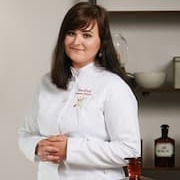 .
.
Ilona Krzak Master of Pharmacy
.
See also:
.
What additional active ingredients should hair collagen have?
.
Using collagen supplements can have a positive effect on the condition of your hair. However, you will get the best results by choosing products that also contain additional active ingredients that benefit hair health. What additives to look out for when choosing pure collagen for hairand?
- Biotin (Vitamin B7). Collagen and biotin for hair are a close-knit duo that is vital to hair health. These ingredients help in the hair growth process and contribute to maintaining hair health.
- Vitamin C. It is a key ingredient in the synthesis of natural collagen for hair. Additionally, it is a powerful antioxidant that helps protect the scalp and hair from free radical damage.
- Hyaluronic acid. Helps keep hair and scalp hydrated, which promotes texture and a youthful appearance.
- Zinc. A mineral that is essential for hair cell growth and repair.
- B vitamins (B3, B5, B6). These also play a key role in maintaining healthy hair by improving scalp circulation and accelerating hair growth.
- Amino acids. For example lysine, proline or glycine are needed for the production of keratin, the main protein in hair structure. Most often you supply them with collagen itself, but sometimes they are also a good addition to collagen preparations.
See also:
Drinking collagen for hair - user reviews
.
I started drinking collagen for my hair about 2 months ago because I had problems with breakage and dry ends. Now I can confidently say it's one of the best decisions I've made. My hair looks so much better - it's shinier and stronger. I will definitely recommend it to my friends..
Anna, 33 years old
.I am after a 3-month treatment with the collagen drink and I have to say that my hair looks healthier. It cheered me up because I couldn't find any other method that would help me. Now my hair is soft and really shines. Collagen is definitely staying in my daily routine..
Kinga, 44 years old
.For me, the hair collagen unfortunately did not work. Maybe it's my individual reaction, but after three weeks of drinking this supplement, I haven't noticed a significant difference. Well, maybe they are a little smoother, but nothing revolutionary..
Wioletta, 29 years old
.I am delighted. I've been drinking the hair collagen for 4 months and I can see a huge difference. My hair is strong, shiny and not falling out at all like before. I am definitely staying with regular supplementation..
Lucia, 22 years old
.I highly recommend it! My hair is like newborn after a few weeks of use. It looks healthy and, above all, it has stopped falling out at the rate it did before. The effect is so noticeable that even my work colleagues have asked me about it. I am definitely in favour..
Eve, 54 years old
Hair treatments
.
Hair treatments aim to nourish, hydrate and restore health and shine to damaged hair. Unlike supplements, they support the hair from the outside rather than the inside. According to cosmetologist Catherine Srebr, there are three types of collagen treatments for hair:
- Hairdressing treatments. These are not among the most effective, as the collagen contained in hair preparations is usually only an additive. By encapsulating the hair, the youth protein can act as an occlusive layer to prevent water loss.
- Non-invasive trichological treatments. In non-invasive trichological treatments, collagen can be used as an auxiliary soothing substance, indirectly moisturising and accelerating healing. The cosmetologist recommends this solution for people with problematic, sensitive or dry skin. .
- Invasive scrubs. They involve the disruption of tissue continuity. Most commonly under this name is the intradermal administration of hair growth stimulating preparations - needle mesotherapy. .
I would not call these treatments collagen treatments, as there is generally too much of that. Collagen is not used as a main ingredient in any hair treatment..
 .
.
Katarzyna SrebrCosmetologist
.
Are hair treatments effective?
.
Collagen needle mesotherapy positively stimulates tissues, including the scalp. Its improved condition is associated with higher levels of hydration, better cellular metabolism and a more favourable blood supply to the tissues. All of this realistically has the potential to improve the quality of the hair follicles, which are responsible for the final appearance of the hair..
 .
.
Katarzyna SrebrCosmetologist
Can anyone undergo hair treatments?
.
No, treatments such as needle mesotherapy are not dedicated to everyone and qualification should always be handled by a responsible cosmetologist, trichologist or doctor..
 .
.
Katarzyna SrebrCosmetologist
Do all specialists recommend collagen treatments?
.
No, among specialists involved in scalp needle mesotherapy, there are also quite a few opponents of collagen administration. This is due to the high risk of excessive skin thickening, which can be detrimental to follicular function..
 .
.
Katarzyna SrebrCosmetologist
.
How to take care of your hair yourself with collagen
.
Are you already supplementing with collagen but feel you need extra support? In addition to professional treatments, you can also apply some solutions yourself. How to use collagen for hair?
- Collagen masks. A collagen-based hair mask is one of the simplest, at-home treatments. You can apply it to your hair to penetrate its structure.
- Collagen ampoules. Collagen ampoules are concentrated doses of collagen that are applied to the hair. These products are often used in salons, but they can also be used at home.
- Shampoos and conditioners with collagen. Cosmetics with collagen can further support the condition of your hair. .
The most popular external products with collagen are shampoos and rubs, as they will work on the skin. They can help to speed up wound healing and create a film to prevent water from escaping. On the hair structure itself, however, proteins, humectants and emollients work better..
 .
.
Katarzyna SrebrCosmetologist
.
When choosing external hair products with collagen, it is worth paying attention to its content and the quality of the other active ingredients. Collagen alone in external administration will not bring spectacular benefits. Supplementation is more beneficial, adds the cosmetologist.
See also:
How to apply collagen to your hair
.
The correct application of collagen to the hair depends on the manufacturer's recommendations. Therefore, always read the label before applying the product. However, the most common steps will be as follows:
- Wash your hair. Start by washing your hair thoroughly with shampoo. This will allow you to remove sebum and other impurities that could interfere with the absorption of collagen.
- Wash your hair.
- Apply collagen. Collagen is most often available as a mask or serum. In either case, apply the product, making sure to distribute it evenly. Remember to focus mainly on the ends of your hair, which are usually the most damaged.
.
- Leave on your hair. Leave the collagen on your hair for the recommended time (check the packaging). Usually this will be around 15-30 minutes, but check the product label to be sure and get the maximum potency out of the product.
- Rinse. After the recommended time has elapsed, rinse hair thoroughly. People with dry hair are often advised not to use shampoo when rinsing. This will ensure that you do not remove everything that the serum or mask has provided for your hair.
.
- Dry and style. Gently towel-dry hair and style as desired.
.
Remember that every product is different, so it's important to always read and follow the instructions on the label.
Also, not all types of collagen are safe for the scalp, some may cause irritation or allergies. Always carry out a test on a small section of the body before applying to the whole hair.
Is there plant-based collagen for hair?
.
Collagen is an animal protein and there is no way to obtain it from plants. What some manufacturers call 'plant collagen' or 'vegan collagen' is usually a collection of amino acids (glycine, proline and lysine) and other plant components that are designed to stimulate collagen production in the body. However, they do not provide collagen per se.

Sprawdź, za co pokochały go tysiące klientek Kolagen Premium 5000 mg, mango-marakuja
Natu.Care Kolagen Premium 5000 mg, mango-marakuja
Natu.Care Kolagen Premium dla zdrowia stawów, skóry, paznokci i włosów. Najlepsza przyswajalność. Optymalna dawka 5 000 lub 10 000 mg. Przebadany przez niezależne laboratorium.
Zobacz więcej
Wybrałam kolagen Natu.Care, ponieważ miał super opinie – a to było dla mnie bardzo ważne! Odkąd go stosuję, moja skóra znacznie się poprawiła i jest nawilżona, a na głowie pojawiły się nowe "baby hair".@Kasia S.
See also:
.
- Which collagen is the strongest .
- Does collagen supplementation make sense .
- Collagen deficiency
- Collagen excess .
Summary
.
- Collagen can improve hair health by strengthening hair follicles, reducing breakage, accelerating growth and reducing greying.
- The best collagen for hair is hydrolysed type 1 fish collagen.
- The best collagen for hair is hydrolysed type 1 fish collagen.
- Collagen also supports the production of keratin, the protein responsible for hair structure. .
- Fish collagen is more effective, safe and environmentally friendly than bovine collagen. .
- Hydrolysed collagen is better absorbed by the body and is more easily dissolved in water, so is a better option than freeze-dried collagen. .
- Collagen supplements should contain additional active ingredients for hair health, such as biotin, vitamin C, hyaluronic acid, zinc, B vitamins and amino acids. .
- Hair collagen treatments such as needle mesotherapy can support hair health. .
FAQ
.Does collagen have an effect on hair?
.Yes, collagen has an effect on hair. It is a key ingredient necessary for their proper construction. It also plays an important role in maintaining the health, strength and elasticity of hair. Supplementing collagen can support the growth and health of hair.
Collagen also provides the amino acids necessary for the production of keratin, which is the main hair-building protein. In addition, research suggests that the youth protein may help to reduce damage caused by the ageing process, such as thinning or greying hair.
Does hair fall out after collagen?
.No, collagen does not cause hair loss. On the contrary, it is often promoted as a supplement to support healthy hair growth and help prevent hair loss. Its functions support hair structure at a cellular level and provides the amino acids necessary for the production of keratin, the main protein that builds hair.
How does collagen work on hair?
.Collagen plays an important role in hair growth and health. It helps to provide amino acids, which are essential for the production of keratin - a key hair-building protein. In addition, collagen supports the production of provitamin A, which is important for maintaining the health of the scalp and hair.
As a powerful antioxidant, it can also protect hair from free radical damage caused by stress, pollution or poor diet.
What are the symptoms of collagen deficiency?
.The first symptoms of collagen deficiency can be noticed as early as 25-30 years of age. What symptoms should you be alert to?
.- Aging skin. The skin loses its firmness and elasticity, and wrinkles wrinkles and fine lines appear. You may also notice dryness of the skin.
- Hair and nail problems. Hair becomes weaker, may fall out or grow more slowly. Nails, on the other hand, will be mostly brittle. .
- Pain joints and muscles. Collagen allows joints to move smoothly, so a lack of collagen can lead to pain, joint stiffness or even diseases such as osteoarthritis.
What are the causes of a lack of collagen in the body?
.The main factor that leads to collagen deficiency is age. Unfortunately - you can't stop time, but you can prevent other effects of a lack of the youth protein. What destroys collagen in the body?
- Exposure to the sun. UV radiation can cause damage to collagen in the skin, leading to premature ageing.
- The body's own collagen is damaged.
- Smoking. Smoking damages collagen fibres in the skin, accelerating the ageing process. Smokers are more likely to experience wrinkles and 'flabby' skin.
- Unhealthy diet A diet high in sugar and refined carbohydrates can accelerate collagen degradation.
- Lack of sufficient vitamin C. Vitamin C is essential for collagen production. Its deficiency in the diet can have a bad effect on the synthesis of the protein of youth.
Who can use collagen?
.Collagen can be used by almost any adult, although supplementation is most commonly recommended for people above the age of 30, when the body's natural collagen production begins to decline.
.
Sources
.See all
.Arias, E. M., Floriach, N., Moreno-Arias, G., Camps, A., Arias, S., & Trüeb, R. M. (2022). Targeted Nutritional Supplementation for Telogen Effluvium: Multicenter Study on Efficacy of a Hydrolyzed Collagen, Vitamin-, and Mineral-Based Induction and Maintenance Treatment. International Journal of Trichology, 14(2), 49-54. https://doi.org/10.4103/ijt.ijt_57_21
Arnold, A. A., & Marcotte, I. (2009a). Studying natural structural protein fibers by solid-state nuclear magnetic resonance. Concepts in Magnetic Resonance Part A, 34A(1), 24-47. https://doi.org/10.1002/cmr.a.20132
Arnold, A. A., & Marcotte, I. (2009b). Studying natural structural protein fibers by solid-state nuclear magnetic resonance. Concepts in Magnetic Resonance Part A, 34A(1), 24-47. https://doi.org/10.1002/cmr.a.20132
Chen, P., Cescon, M., & Bonaldo, P. (2015). Lack of Collagen VI Promotes Wound-Induced Hair Growth. The Journal of Investigative Dermatology, 135(10), 2358-2367. https://doi.org/10.1038/jid.2015.187
Glynis, A. (2012). A Double-blind, Placebo-controlled Study Evaluating the Efficacy of an Oral Supplement in Women with Self-perceived Thinning Hair. The Journal of Clinical and Aesthetic Dermatology, 5(11), 28-34.
Katsuoka, K., Mauch, C., Schell, H., Hornstein, O. P., & Krieg, T. (1988). Collagen-type synthesis in human-hair papilla cells in culture. Archives of Dermatological Research, 280(3), 140-144. https://doi.org/10.1007/BF00456843
Milani, M., Colombo, F., & GFM-O-Trial Investigators Group: Chiara Baraldo (Padova), M. C. F. (Genova), Mauro Barbareschi (Milano), Paolo Chieco (Ruvo di Puglia), Laura Colonna (Roma), Mandel Victor Desmond (Modena). (2023). Efficacy and tolerability of an oral supplement containing amino acids, iron, selenium, and marine hydrolyzed collagen in subjects with hair loss (androgenetic alopecia, AGA or FAGA or telogen effluvium). A prospective, randomized, 3-month, controlled, assessor-blinded study. Skin Research and Technology, 29(6), e13381. https://doi.org/10.1111/srt.13381
Rustad, A. M., Nickles, M. A., McKenney, J. E., Bilimoria, S. N., & Lio, P. A. (2022). Myths and media in oral collagen supplementation for the skin, nails, and hair: A review. Journal of Cosmetic Dermatology, 21(2), 438-443. https://doi.org/10.1111/jocd.14567
Silvestrini, B., Cheng, C. Y., Innocenti, M., Silvestrini, B., Cheng, C. Y., & Innocenti, M. (2022). Collagen Involvement in Health, Disease, and Medicine. In Collagen Biomaterials. IntechOpen. https://doi.org/10.5772/intechopen.101978
Wicklin, V., & Ann, S. (2023). Natural Hair Supplements: Biotin and Collagen. Plastic and Aesthetic Nursing, 43(3), 107. https://doi.org/10.1097/PSN.0000000000000508
Marine Collagen from Alternative and Sustainable Sources: Extraction, Processing and Applications-PMC. (n.d.). Retrieved 17 April 2023, from https://www.ncbi.nlm.nih.gov/pmc/articles/PMC7230273/
Silva, T. H., Moreira-Silva, J., Marques, A. L. P., Domingues, A., Bayon, Y., & Reis, R. L. (2014). Marine Origin Collagens and Its Potential Applications. Marine Drugs, 12(12), Article 12. https://doi.org/10.3390/md12125881
Jelonek, L. (2023). Collagen. Everything you need to know (B. Turczynski, Ed.; 1st ed.). Natu.Care. https://books.google.com/books?vid=9788396887801
.
Editorials
Meet the team

Cosmetologist
Cosmetologist and linergist with extensive experience working with clients with a wide range of skin health needs and concerns.

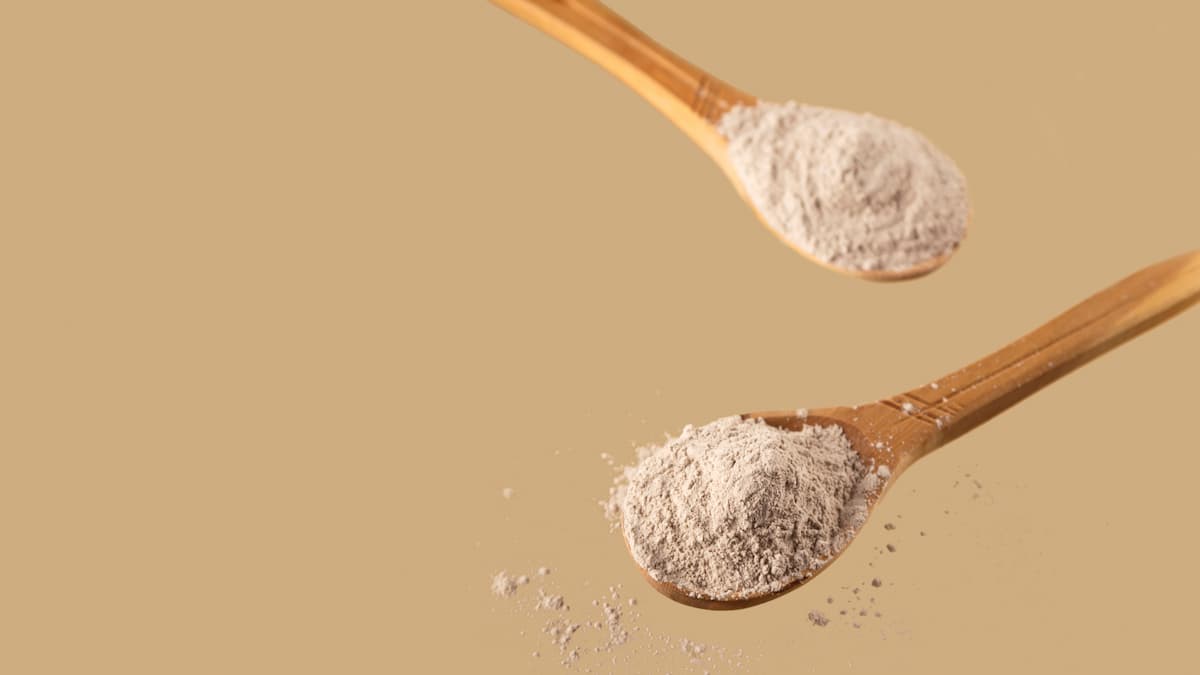
Everything you want to know about COLLinstant collagen.

Collibre collagen is an interesting supplement in shot form.
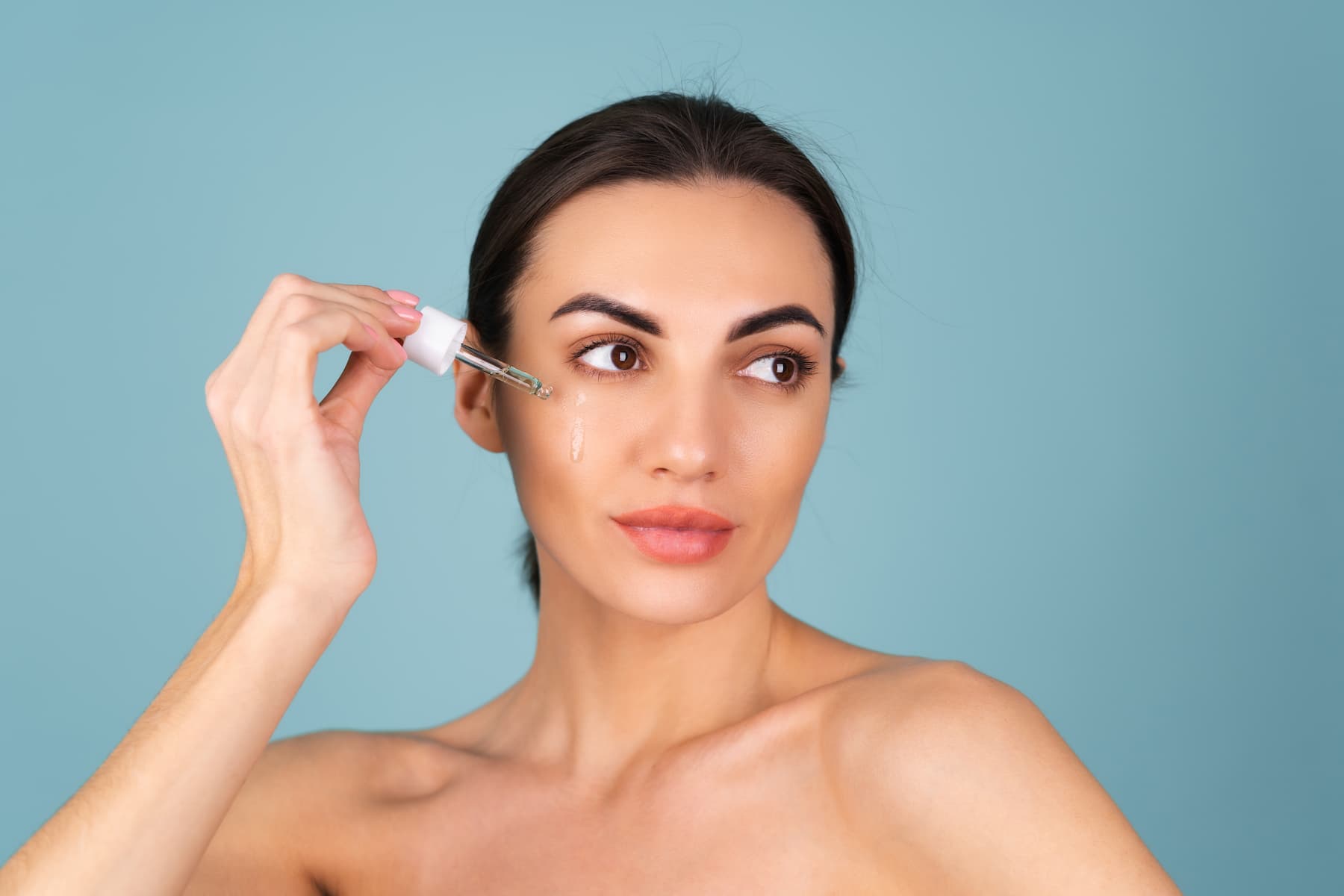
Solgar collagen with hyaluronic acid is a dietary supplement that supports skin and joint health.
